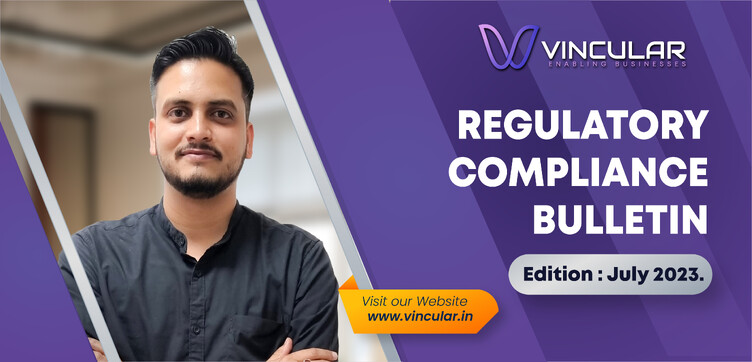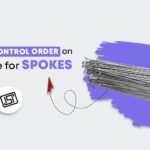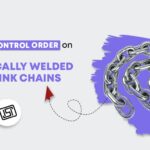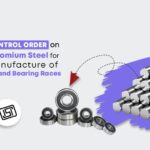ISI
Clarification regarding IS 17043: 2018 – Derby Shoes

Bureau of Indian Standards (BIS) has recently released a notification for clarifying the coverage of derby shoes. It is noted that the BIS-ISI certification only applies to Derby shoes used by armed forces/police forces. Derby shoes for civilians are not subject to these regulations as of now.
The Department for Promotion of Industry and Internal Trade (DPIIT) under the Ministry of Commerce and Industry, Government of India has released a draft Quality control order (QCO) for a list of 85 household electrical appliances that need to comply with the relevant Indian Standard, i.e., IS 302 (Part-1): 2008. Once the QCO will be implemented, the manufacturer mandatorily needs to obtain ISI Mark Certification from the BIS as per Scheme-I of Schedule-II.
The listing of the 85 electrical appliances that need to comply with the Indian Standard IS 302 (Part 1): 2008 and official notification can be accessed from here. We shall keep you updated with further progress on the said quality control order (QCO) about the mandatory implementation date.
Update on IS 1293:2019 (Plug and Socket)
BIS has released a notification under the scheme-I (ISI) through Quality Control Order (QCO), the concurrent running of IS 1293: 2005 will last till October 2023. After 23rd October, the 2005 version will be withdrawn and IS 1293:2019 shall stand in force. You can check the notification here.
On 26th July 2019, the IS 1293: 2005 was revised and published as IS 1293: 2019 ‘Plugs and Socket-outlets for Household and Similar Purposes of Rated Voltage up to and Including 250 V and Rated Current up to and Including 16 A’. After 23rd October 2023, no further extension shall be given in the date of concurrent running of IS 1293.
Varieties which are covered under the scope of IS 1293: 2005 but not covered under the scope of IS 1293: 2019 can only be manufactured up-to 23rd October 2023.
Sectional committee ETD 14 changed few varieties of plug and sockets under latest standard IS 1293: 2019.
Key highlights are as below:

Introduction of New Product Categories in BIS-ISI scheme
The main objective of the BIS is to ensure that the products that are delivered to the end consumers are safe to use and adhere to all the quality and safety standards. In India, the ISI mark is the synonym for better quality and safety. BIS has been found to continuously extend its scope and provide the end consumers with products that are safer and technically sound. So, on a regular basis, BIS releases the guidance document (QCO- Quality Control Order) which provides easy comprehension and explains various requirements specified in QCOs for better understanding towards implementation by the stakeholders.
Some of the QCO which BIS/Ministry has released few days back for the implementation of new product categories are mentioned below:
1. Air Conditioners (Unitary Air conditioners IS 1391 Part-1: 2017 and Split Air conditioners IS 1391 Part-2: 2017): Implementation date 1st Oct 2023.
2. Household Refrigerating Appliances (IS 17550 (Part 1): 2021- Implementation date 1st Jan 2024
3. Freezers (IS 7872: 2018)- Implementation date 1st Jan 2024
4. 100 Percent Polyester Spun Grey and White Yarn (PSY) IS 17265: Implementation date 5th October 2023
5. Polyester Continuous Filament Fully Drawn Yarn (FDY) IS 17261: Implementation date 5th October 2023
6. Polyester Industrial Yarn (IDY) IS 17264: Implementation date 5th October 2023
7. Polyester Partially Oriented Yarn (POY) IS 17262: Implementation date 5th October 2023
8. Smart Meter (IS 16444 Part 1 and IS 16444 Part 2): Implementation date 14th April 2024
BIS-ISI mark for Potable Water Bottles
DPIIT has released a Quality Control Order for the mandatory implementation of Portable water bottles made of Copper, Stainless Steel, and Aluminum (IS 17803:2022) in the BIS-ISI scheme.
From 4th January 2024, BIS-ISI mark will be mandatorily required on the Potable Water Bottles. Please find the attached link to the Quality Control Order here.
Note:
- For small enterprises: Enforcement date for the aforementioned regulation will be 5th April 2024
- For Micro Enterprises: Enforcement date for the aforementioned regulation will be 5th July 2024
BIS-CRS
IEC 62368 New Edition and related updates
IEC 62368 latest edition IEC 62368-1: 2023 (4th Edition) was published on 26th May 2023. IEC 62368-1 already replaced existing standards: IEC/EN/UL/CSA 60065, Audio, Video and Similar Electronic Apparatus, and IEC/EN/UL/CSA 60950–1, Information Technology Equipment in many countries. It is product safety standard that classifies ES (energy sources), prescribes safeguards against those energy sources, and provides guidance on the application of, and requirements for, those safeguards. The prescribed safeguards are intended to reduce the chance of pain, injury and damage.
As on date, different countries using different versions of IEC 62368. Few major countries for example-
- USA: 2nd and 3rd Edition
- EU: 2nd Edition
- China, South Korea: 3rd Edition
In India IS/IEC 62368-1: 2018 is equivalent to 3rd Edition available since 5th July 2018, but not mandated yet for compulsory registration under CRS.
As per previous stakeholder meeting held on 8th February 2023, BIS had informed that it would notify IS 62368 Ver 4 and then MEITY will do stakeholder consultation for notifying 62368 for concurrent run of 2-year period.
As per latest information, the draft IS/IEC 62368-Edition 4 will be issued by BIS during August 1st week for receiving inputs from stakeholders, then MEITY will conduct industry consultation for its implementation.
However, global standard IEC 62368 Edition 4 has the below notable changes from its previous editions-
- Clause 4: General
Clause 4 allowance of components and subassemblies with IEC 60950-1 or IEC 60065 has been removed. As per 4th edition, components and subassemblies with legacy standards will not be accepted.
- Clause 5: Electrically caused injury
- Clause 6: Electrically caused Fire
- Clause 9: Thermal burn injury
- Annex M
Annex M has been refined for equipment containing batteries, considering battery application has been increased in many new areas. Lithium batteries not limited to portable devices only, so IEC 62133-2 compliant batteries are now permitted for some subsystems powering of stationary equipment.
TEC (MTCTE)
Extension of Generic Exemption for MTCTE Test Parameters/Interfaces
Telecommunication Engineering Centre (TEC) has extended the generic exemption for specific test parameters/interfaces of certain ERs till December 31, 2023, or until further orders. The product names/variants/interfaces covered under this exemption are as below:

The official notification may be uploaded against the above-mentioned interfaces/ parameters in the portal during the application submission.
Exempted Parameters of PON Products and ECR Requirements under MTCTE

TEC has recently extended the date for exempted parameters for the PON products.
In addition, TEC has made ECR (Energy Consumption Rating) parameter mandatory from 20th July 2023 for the PON Products.

Bureau of Energy Efficiency (BEE)
Extension of 3 more months for filing the production data and payment of labeling fee for the FY 2022-2023

Bureau of Energy Efficiency (BEE) has given another extension for submitting the production data and subsequently paying the labelling fees for the financial year 2022-2023, till September 30, 2023.
This extension provides an opportunity to all permittees who were unable to meet previous deadlines and submit the production statistics for their BEE registered models. However, if the extended deadline is missed this time around, the BEE account will be locked, and the department may impose a penalty.
Extension in the star rating table for Tubular Fluorescent Lamps

BEE has extended the star rating table period of ‘Tubular Fluorescent Lamps’ by 3 years, i.e., from July 1, 2023, to June 30, 2026.
As this product is under the mandatory regime of S&L scheme, all manufacturers who wish to continue their registered models must submit the previous approval letter and revised sample label to BEE by 30th September 2023.
Note: Model Continuation should be done by 30th September 2023; otherwise, existing registrations will be deactivated. The portal is active to receive such applications from 24th June 2023.
New star rating table introduced for LED Lamps

There is an upgradation in the star rating table for LED Lamps effective from July 1st, 2023, to June 30th, 2026. With this upgrade, the existing star rating will decrease by 1 star (e.g. 5 stars will change to 4 stars, 4 stars to 3 stars, and so on). Below is the new star rating table FYR:

Therefore, to keep the already registered model aligned with the new table and star rating criteria, registered manufacturer can apply for either of the following two processes.
- Renewal process: This process allows you to retain the same star rating of your LED lamps as per the new star rating table, i.e., Table 3.2, by making necessary technological changes to the product and increasing its energy efficiency to match the new criteria. To apply for this process, please submit your application by 30th September 2023.
- Degradation process: By reducing the star rating of the lamp by one star as per the new star rating table, one can apply for the degradation process. In this, you will need to re-label your lamps as one star less by 30th June 2026.
Furthermore, the new table comes with another relaxation update. BEE has lifted the restriction on the sale, manufacturing, and import of one-star LED lamps, thereby providing more flexibility in the market.
Waste Management
EPR for Waste Tyre Launched!

The online portal for EPR for Waste Tyre is launched and operational. The provisions of these rules shall be applicable to the following entities-
- Producer- any person or entity who, –
(i) manufactures and sells new tyre domestically
(ii) sells domestically under its own brand, or manufactured by other manufacturers or suppliers,
(iii) sells an imported new tyre; or
(iv) imports vehicles fitted with new tyres; or
(v) automobile manufacturers importing new tyre for use in new vehicles sold domestically;
(vi) imports waste tyre.
2. Recycler of Waste Tyre
3. Retreaders- any entity who process renewal of tread or side wall rubber of a worn-out tyre having a good structural quality.
Any entity found non-compliant to the rules, shall be levied with environmental compensation.
Show Cause Notice to Unregistered Brand Owners under Plastic Waste Management Rules

Under the Extended Producer Responsibility guidelines for plastic packaging, every Producer, Importer and Brand Owner is required to register on the centralized portal of Central Pollution Control Board (CPCB). Recently, CPCB has released the list of all the unregistered Brand Owners under Plastic Waste Management Regulation and issued them a show cause notice for non-compliance with PWM rules. The listed BOs must register through an online portal and submit the reply of show cause notice within 10 days of the issuance of show cause notice.
E-Waste: II Amendment, 2023
CPCB has released II Amendment to E-waste Management Rules 2022. Below are the highlights of this amendment that might affect your business.
- All the Manufacturers, Refurbishes, and Recyclers of refrigeration and air-conditioning equipment, shall ensure secure, accountable and sustainable management of refrigerant generated by adopting approved destruction technologies as per the guidelines issued by the Central Pollution Control Board.
- Producers are exempted from RoHS applicability till 1st April 2025.
*This should be considered as an interim period to get the RoHS certificates if not yet applied.
- Components or consumables or parts or spares required for electrical and electronic equipment are exempted from RoHS applicability till 1st April 2028.
*This should be considered as an interim period to get the RoHS certificates if not yet applied.
Direction to unregistered producers under Plastic Waste Management Rules
Under the Extended Producer Responsibility guidelines for plastic packaging, every Producer, Importer and Brand Owner shall register on the centralized portal of CPCB and the PIBOs shall not deal with any unregistered entity.
In view of the above, CPCB has released the list of unregistered Producers and directed them to register on the Centralized EPR Portal of Plastic Packaging within 15 days of the issuance of the direction.
Voice Compliance
TRAI’s recommendations on licensing framework for submarine cable landing in India

The Telecom Regulatory Authority of India(TRAI) has recently issued its recommendations on the licensing framework and regulatory mechanism for submarine cable landing in India. These recommendations aim to streamline the process of submarine cable landing in the country and ensure a fair and transparent environment for all stakeholders involved.
These recommendations emphasize on the importance of promoting competition, encouraging investment, and ensuring the efficient utilization of submarine cable capacity. One of the key suggestions put forth by TRAI is the formation of a consolidated licensing framework for submarine cable landing, as the present unified license regime for International Long-Distance Operators (ILDOs) and Internet Service Providers (ISP) do not have concrete guidelines for setting up Cable Landing Station (CLS) for submarine cables.
Additionally, TRAI has proposed the establishment of a National Submarine Cable Network (NSCN) as a nodal agency responsible for coordinating and overseeing submarine cable landing activities in India. The NSCN would act as a single point of contact for cable operators, facilitating efficient coordination, and resolving any issues related to cable landing.
In conclusion, TRAI’s recommendations on the licensing framework and regulatory mechanism for submarine cable landing in India aim to create a favorable environment for operators, promote competition, and ensure the efficient utilization of submarine cable capacity. These recommendations, if implemented, would streamline the process of submarine cable landing, foster innovation, and contribute to the growth of India’s digital connectivity with the world.
TRAI releases Consultation Paper on Regulatory Mechanism for Over-The-Top (OTT) Communication Services and Selective Banning of OTT Services

From heated debates to polarizing opinions, the journey of Over-the-top (OTT) services continues to be a topic of debate in the Indian telecom industry! Recently the government has asked TRAI to develop laws for OTT in light of the draft telecom bill, boom of OTT applications in the market, their effects on the end users, and impact on data privacy.
TRAI has released a consultation paper on ‘Regulatory Mechanism for OTT Communication Services and Selective Banning of OTT Services’. Through this consultation paper, TRAI has sought guidance from the stakeholders and industry members on their viewpoint and justification regarding the definition and classification of ‘OTT services’ and ‘OTT communication services’. It also covers questions on the needs for a collaborative framework between OTT communication service providers and the licensed telecommunication service providers (TSP). The paper also touches upon the very important topic of classes of OTT services that should be covered under selective banning due to security and privacy concerns. The consultation paper is open for public comments till 4th August 2023 and counter-comments by 18th August 2023.
Stay updated with our Newsletter! Get the latest Regulatory Compliance news straight to your inbox – Subscribe Now.
info@vincular.in
+91-8088805577






